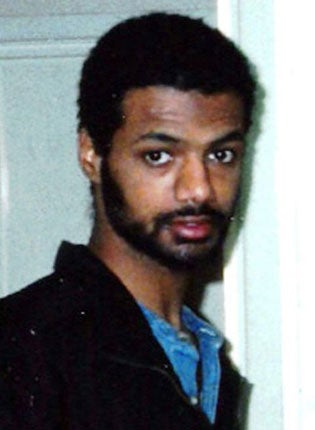Britain's torture role must be investigated, say MPs
Joint Commons and Lords committee expected to issue damning report on MI5's part in the rendition of terror suspects

Your support helps us to tell the story
From reproductive rights to climate change to Big Tech, The Independent is on the ground when the story is developing. Whether it's investigating the financials of Elon Musk's pro-Trump PAC or producing our latest documentary, 'The A Word', which shines a light on the American women fighting for reproductive rights, we know how important it is to parse out the facts from the messaging.
At such a critical moment in US history, we need reporters on the ground. Your donation allows us to keep sending journalists to speak to both sides of the story.
The Independent is trusted by Americans across the entire political spectrum. And unlike many other quality news outlets, we choose not to lock Americans out of our reporting and analysis with paywalls. We believe quality journalism should be available to everyone, paid for by those who can afford it.
Your support makes all the difference.Allegations of Britain's involvement in the torture of terror suspects must be subject to an independent inquiry, a parliamentary committee is expected to demand this week.
MPs and peers on the cross-party Joint Committee on Human Rights will step up pressure on the Government over the role of MI5 in extraordinary rendition. It follows fresh allegations heard at the High Court last week, including claims that an MI5 officer known as Witness B made three visits to Morocco at the time that former Guantanamo Bay detainee Binyam Mohamed claims he was tortured in the country.
The human rights committee is expected to issue a damning report on the Government's role, saying that only an independent probe will be able to establish whether Britain was complicit. Ministers have denied that Britain has played any role in torture, but have shifted their position on extraordinary rendition since the first revelations of the practice by the US emerged in 2005.
Labour MP Andrew Dismore, the committee chairman, refused to confirm that the report would call for an independent inquiry when asked on BBC2's Newsnight on Friday. But it is understood the report will be critical of the piecemeal confirmation of details of extraordinary rendition, as well as the way ministers have handled the affair.
After talks in America with the US Secretary of State, Hillary Clinton, last week, David Miliband, the Foreign Secretary, said London and Washington have a "uniquely close intelligence-sharing relationship based on deep trust and a fundamental principle is that we do not disclose each other's intelligence publicly".
There were more difficult revelations for MI5 last night with claims that the security service mistakenly recruited up to six al-Qa'ida sympathisers in the wake of the 7 July 2005 bombings in London.
Patrick Mercer, the Commons counter-terrorism committee chairman, said two would-be officers had attended training camps in Pakistan where it was likely they came into contact with al-Qa'ida, while another three or four had gaps of up to three months in their life histories, which led to them being thrown out.
Mr Mercer said: "I believe that two candidates got some way into training, though I don't think very far, before they were hoofed out because there was a black hole in their CVs. It probably involved terrorist training in Pakistan or Afghanistan. Three to four others were picked up during the vetting process along the same lines."
Mr Mercer said it was "hardly surprising" that terrorist groups tried to infiltrate MI5, just as the IRA had in the 1970s and 1980s, and vice versa.
It was unlikely the two candidates that had been taken on had ever got inside Thames House, the headquarters of MI5, he said, but he called on the Home Secretary, Alan Johnson, to hold an investigation into the incidents.
The Tory MP added: "It is a relief that it would seem that there was a small number that got into training."
A Home Office spokesman said: "MI5 takes vetting seriously indeed. All candidates are required to undergo the most comprehensive process of security vetting in the UK. Applicants go through extensive vetting and it is not unusual for a number to drop out or fail at the earliest stages for a variety of reasons."
Join our commenting forum
Join thought-provoking conversations, follow other Independent readers and see their replies
Comments